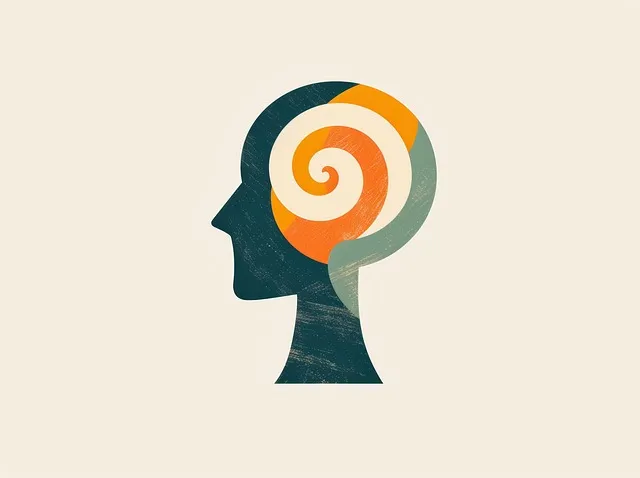Cultural sensitivity in mental healthcare, exemplified by services at the Boulder Kaiser Permanente psychiatry phone number, is vital for equitable and effective treatment. It requires understanding and respecting diverse cultural beliefs, values, and practices that impact emotional well-being and help-seeking behaviors. Trained professionals use conflict resolution, communication skills, and non-verbal cues to create a supportive environment. This ensures culturally competent interventions leading to positive outcomes for all patients, regardless of their background. Boulder Kaiser Permanente's specialized psychiatry phone line promotes understanding, trust, and tailored treatment through cultural sensitivity, empowering diverse communities with inclusive mental healthcare.
In today’s diverse society, cultural sensitivity is paramount in mental healthcare. Understanding and navigating cross-cultural communication can significantly improve patient outcomes. This article explores key aspects of cultural sensitivity in psychiatric practice, addressing challenges, offering strategies for enhancing cultural competence, and highlighting resources like the Boulder Kaiser Permanente Psychiatry Phone Number, dedicated to serving diverse communities. By embracing these insights, mental health professionals can provide more inclusive and effective care.
- Understanding Cultural Sensitivity in Mental Healthcare
- Challenges and Barriers in Cross-Cultural Communication
- Strategies to Enhance Cultural Competence in Psychiatry
- Boulder Kaiser Permanente Psychiatry Phone Number: A Resource for Diverse Communities
Understanding Cultural Sensitivity in Mental Healthcare

Cultural sensitivity in mental healthcare is a cornerstone of providing equitable and effective treatment. It involves recognizing and respecting the diverse beliefs, values, and practices that shape individuals’ emotional well-being promotion techniques and ways they express or seek help for mental health issues. Given the complex interplay between culture and mental health, professionals like those at the Boulder Kaiser Permanente psychiatry phone number must be adept at navigating these differences to foster a safe and supportive environment.
Understanding cultural sensitivity necessitates training in conflict resolution techniques that allow healthcare providers to effectively communicate with patients from varied backgrounds. This includes learning about different communication styles, non-verbal cues, and community-specific mental wellness practices. By embracing this approach, mental health professionals can ensure their interventions are culturally competent, promoting positive outcomes for all individuals seeking support, regardless of their cultural or ethnic identity.
Challenges and Barriers in Cross-Cultural Communication

Navigating cross-cultural communication in mental healthcare can present unique challenges. Patients from diverse backgrounds bring their own cultural frameworks, beliefs, and linguistic nuances to therapy, which may differ significantly from those of the healthcare provider. This divergence can lead to misunderstandings, miscommunications, and barriers that hinder effective treatment. For instance, a patient’s reluctance to discuss certain topics might not be due to resistance but rather cultural taboos or fears surrounding mental health.
At organizations like Boulder Kaiser Permanente, where diverse communities are served, empathy building strategies and compassion cultivation practices become essential tools. Psychiatrists and therapists must actively work on developing cultural sensitivity and proficiency. This involves learning about different cultural contexts, practicing active listening, and employing emotional well-being promotion techniques tailored to each patient’s unique needs. By fostering an environment of understanding and acceptance, healthcare providers can bridge the gap in communication, ensuring that every patient receives culturally competent care, ultimately improving treatment outcomes.
Strategies to Enhance Cultural Competence in Psychiatry

Enhancing cultural competence in psychiatry is paramount to providing effective care to a diverse patient population. At Boulder Kaiser Permanente, professionals are encouraged to embrace Mind Over Matter Principles as a foundational approach. This involves actively listening to patients’ unique backgrounds, values, and beliefs, fostering an environment of trust and understanding. By integrating these perspectives into treatment plans, mental health practitioners can tailor interventions that resonate with individual needs.
Additionally, incorporating strategies like Self-Care Routine Development for Better Mental Health is beneficial. Educating patients on the importance of self-care practices specific to their cultural context empowers them to actively participate in their recovery. This holistic approach not only improves mental wellness but also strengthens the therapeutic alliance between patient and provider.
Boulder Kaiser Permanente Psychiatry Phone Number: A Resource for Diverse Communities

In Boulder, Kaiser Permanente offers a specialized psychiatry phone number dedicated to serving diverse communities. This resource is a testament to the organization’s commitment to cultural sensitivity in mental healthcare practice. By providing easy access to qualified professionals, they ensure that individuals from all backgrounds can receive culturally competent care tailored to their unique needs. The service connects callers with experts who not only possess deep knowledge of various cultural contexts but also employ conflict resolution techniques to foster understanding and trust, preventing burnout among both patients and providers.
The Boulder Kaiser Permanente psychiatry phone number does more than facilitate appointments; it empowers communities by promoting positive thinking and addressing mental health concerns within diverse populations. This initiative underscores the growing recognition that effective treatment must consider the interplay of cultural identities, languages, and experiences. By leveraging this resource, healthcare professionals can offer more inclusive care, ensuring that everyone has access to the support they need to navigate life’s challenges with resilience and dignity.
Mental healthcare practices that prioritize cultural sensitivity are not only beneficial but necessary in diverse communities. Overcoming challenges in cross-cultural communication and adopting strategies to enhance cultural competence, such as those offered by resources like the Boulder Kaiser Permanente Psychiatry Phone Number, is crucial for providing inclusive and effective care. By fostering understanding and empathy, mental health professionals can create a supportive environment that respects and embraces different cultural backgrounds, ultimately improving patient outcomes and well-being.






